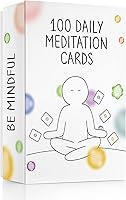Table of Contents
We all experience difficult emotions from time to time, such as anger, sadness, fear, anxiety, or guilt.
These emotions are natural and normal, but they can also be overwhelming and disruptive.
They can affect our mood, behavior, relationships, health, and well-being.
How can we deal with difficult emotions in a healthy and constructive way?
How can we find inner balance and peace?
In this article, I’ll share with you 5 strategies that can help you cope with difficult emotions and achieve inner balance.
These strategies are based on scientific research and proven techniques from psychology, mindfulness, and emotional intelligence.
By applying these strategies, you’ll be able to:
- Understand your emotions and their causes
- Accept your emotions without judgment or resistance
- Express your emotions in appropriate and healthy ways
- Regulate your emotions and reduce their intensity
- Transform your emotions and use them as a source of growth and learning
Strategy 1: Understand your emotions and their causes
The first step to dealing with difficult emotions is to understand what they are and why they arise.
Emotions are complex and multifaceted phenomena that involve physiological, cognitive, and behavioral components.
They are triggered by internal or external events that are perceived as significant or relevant to our goals, values, or needs.
For example, you might feel angry when someone insults you, sad when you lose a loved one, or anxious when you face a challenge.
To understand your emotions and their causes, you need to pay attention to the following aspects:
- The event. What happened that triggered your emotion? Was it something that someone said or did, or something that happened in your environment?
- The appraisal. How did you interpret or evaluate the event? What meaning or significance did you give to it? How did it affect your goals, values, or needs?
- The response. How did you react to the event and your appraisal? What physical sensations, thoughts, feelings, and actions did you experience?
By identifying these aspects, you’ll be able to gain more clarity and insight into your emotions and their causes.
You’ll also be able to challenge any distorted or irrational appraisals that might be amplifying or prolonging your negative emotions.
For example, if you feel anxious about a presentation, you might be appraising it as a threat to your self-esteem or competence.
You might be thinking things like “I’m going to fail”, “I’m not good enough”, or “Everyone will judge me”.
These appraisals are not based on facts but on assumptions, expectations, or beliefs that might be unrealistic or inaccurate.
By questioning and reframing these appraisals, you can reduce your anxiety and increase your confidence.
You can use the following questions to help you understand and challenge your appraisals:
- What evidence do I have to support or contradict my appraisal?
- Is there another way to look at the situation that is more positive or realistic?
- What is the worst that can happen and how likely is it?
- What can I do to cope or prepare for the situation?
- What can I learn from this experience?

Strategy 2: Accept your emotions without judgment or resistance
The second step to dealing with difficult emotions is to accept them without judgment or resistance.
Many people tend to avoid, suppress, or deny their emotions, especially the negative ones.
They might think that their emotions are bad, wrong, or weak and that they should not feel them.
They might also fear that their emotions will overwhelm them, harm them, or last forever.
However, these strategies are counterproductive and harmful.
They can lead to more emotional distress, psychological problems, physical symptoms, and impaired performance.
They can also prevent us from accessing the valuable information and energy that our emotions provide.
The alternative is to accept our emotions as they are, without judging them as good or bad, right or wrong, or strong or weak.
Acceptance means acknowledging and allowing our emotions to be present, without trying to change, control, or get rid of them.
Acceptance also means being compassionate and kind to ourselves, regardless of what we feel.
By accepting our emotions, we can reduce their negative impact, increase our emotional awareness, and enhance our emotional resilience.
We can also create more space and freedom to choose how to respond to our emotions, rather than being controlled by them.
One of the best ways to practice acceptance is to use mindfulness techniques, such as:
- Breathing exercises. These are simple and effective ways to calm your nervous system, relax your body, and focus your mind. You can try breathing deeply and slowly, inhaling through your nose and exhaling through your mouth. You can also count your breaths, or follow a guided breathing meditation. You will breathing exercises on this Youtube channel.
- Body scans. These are exercises that help you scan your body for any sensations, tensions, or emotions that you might be feeling. You can start from your toes and move up to your head, or vice versa. You can also use a guided body scan meditation.
- Emotion labeling. This is a technique that helps you name and label your emotions, without judging or analyzing them. You can simply say to yourself “I’m feeling angry”, “I’m feeling sad”, or “I’m feeling anxious”. You can also use a list of emotion words or an emotion wheel to help you identify and label your emotions.
Strategy 3: Express your emotions in appropriate and healthy ways
The third step to dealing with difficult emotions is to express them in appropriate and healthy ways.
Expression means communicating and releasing your emotions, either to yourself or to others.
Expression can help you process and understand your emotions, reduce their intensity, and resolve any conflicts or issues that might be causing them.
Expression can also help you connect and empathize with others, build trust and intimacy, and receive support and feedback.
However, not all forms of expression are equally beneficial or appropriate.
Some forms of expression can be harmful or destructive, such as:
- Aggression. This is when you express your emotions in a hostile, violent, or abusive way, such as yelling, hitting, or hurting yourself or others.
- Passive-aggression. This is when you express your emotions in a covert, indirect, or manipulative way, such as sulking, ignoring, or sabotaging yourself or others.
- Rumination. This is when you express your emotions in a repetitive, obsessive, or negative way, such as dwelling, complaining, or blaming yourself or others.
These forms of expression can worsen your emotional state, damage your relationships, and create more problems.
The alternative is to express your emotions in a constructive, respectful, and positive way, such as:
- Journaling. This is when you express your emotions in writing, such as in a diary, a notebook, or a computer. Journaling can help you clarify and organize your thoughts, feelings, and experiences. It can also help you release and vent your emotions, without hurting yourself or others. These journals will help for sure.
- Art. This is when you express your emotions in a creative way, such as through drawing, painting, music, or poetry. Art can help you express and explore your emotions, without using words. It can also help you discover and express your inner self, your talents, and your passions.
- Assertiveness. This is when you express your emotions in a direct, honest, and respectful way, such as by using “I” statements, such as “I feel angry when you…”, “I need you to…”, or “I appreciate you for…”. Assertiveness can help you communicate your emotions, needs, and boundaries, without being aggressive or passive. It can also help you negotiate and resolve conflicts, without compromising your values or rights.

Strategy 4: Regulate your emotions and reduce their intensity
The fourth step to dealing with difficult emotions is to regulate them and reduce their intensity.
Regulation means managing and moderating your emotions so that they don’t interfere with your goals, tasks, or well-being.
Regulation can help you cope with stress, overcome challenges, and perform better.
Regulation can also help you balance your emotions so that you don’t experience too much or too little of any emotion.
There are many ways to regulate your emotions and reduce their intensity, such as:
- Distraction. This is when you shift your attention away from your emotions and focus on something else that is more positive, pleasant, or neutral. You can try doing something that you enjoy, such as reading, watching, or playing. You can also try doing something that requires concentration, such as solving a puzzle, learning a skill, or working on a project.
- Reappraisal. This is when you change your perspective or interpretation of the situation that is causing your emotions. You can try looking at the situation from a different angle, such as from another person’s point of view, from a broader context, or from a future perspective. You can also try finding the positive or beneficial aspects of the situation, such as the opportunities, lessons, or growth that it offers.
- Relaxation. This is when you calm your body and mind, and reduce the physical and mental arousal that your emotions cause. You can try using relaxation techniques, such as deep breathing, progressive muscle relaxation, meditation, or yoga. You can also try using sensory stimuli, such as aromatherapy, relaxing music, or nature, to soothe your senses and emotions.
Strategy 5: Transform your emotions and use them as a source of growth and learning
The fifth and final step to dealing with difficult emotions is to transform them and use them as a source of growth and learning.
Transformation means changing your emotions from negative to positive, or from unhelpful to helpful.
Transformation can help you use your emotions as a source of growth and learning, rather than a source of suffering and stagnation.
Transformation can also help you cultivate positive emotions, such as gratitude, joy, love, and compassion, that can enhance your well-being and happiness.
There are many ways to transform your emotions and use them as a source of growth and learning, such as:
- Forgiveness. This is when you let go of any resentment, anger, or bitterness that you might feel towards yourself or others who have hurt you or wronged you. Forgiveness can help you heal your emotional wounds, restore your inner peace, and improve your relationships.
- Gratitude. This is when you appreciate and acknowledge the good things that you have in your life, such as your health, your family, your friends, or your achievements. Gratitude can help you shift your focus from what you lack to what you have, and from what you can’t control to what you can control. Gratitude can also help you generate more positive emotions, such as joy, satisfaction, and optimism.
- Compassion. This is when you feel and show kindness, empathy, and care for yourself and others who are suffering or in need. Compassion can help you reduce your self-criticism, increase your self-acceptance, and connect with others on a deeper level. Compassion can also help you alleviate your own and others’ pain, and inspire you to take action to help.

Frequently Asked Questions
What are the benefits of dealing with difficult emotions?
Dealing with difficult emotions can have many benefits for your mental, emotional, and physical health, such as:
– Reducing your stress, anxiety, and depression
– Improving your mood, self-esteem, and confidence
– Enhancing your performance, productivity, and creativity
– Strengthening your relationships, communication, and social skills
– Boosting your immune system, energy, and vitality
How can I deal with difficult emotions at work?
Dealing with difficult emotions at work can be challenging, but not impossible. Here are some tips that can help you cope with difficult emotions at work:
– Take a break. When you feel overwhelmed or stressed, take a few minutes to step away from your work and calm yourself. You can use any of the strategies mentioned above, such as breathing, body scan, or emotion labeling, to relax and regulate your emotions.
– Talk to someone. When you feel angry, sad, or frustrated, talk to someone who can listen and support you, such as a colleague, a friend, or a family member. You can also talk to your manager or HR if you have any issues or concerns that need to be addressed or resolved.
– Seek help. When you feel depressed, anxious, or hopeless, seek professional help from a therapist, counselor, or coach. They can help you understand and deal with your emotions, and provide you with tools and resources to cope and improve.
How can I help someone who is dealing with difficult emotions?
Helping someone who is dealing with difficult emotions can be rewarding, but also challenging. Here are some tips that can help you help someone who is dealing with difficult emotions:
– Listen. The most important thing you can do is to listen to them with empathy, patience, and respect. Don’t interrupt, judge, or criticize them. Don’t try to fix, advise, or solve their problems. Just listen and let them express their emotions and thoughts.
– Validate. The next thing you can do is to validate their emotions and experiences. Don’t dismiss, minimize, or invalidate their feelings. Don’t tell them to cheer up, calm down, or get over it. Instead, acknowledge and accept their emotions, and show them that you understand and care.
– Support. The last thing you can do is to support them in any way that they need or want. Don’t impose your own agenda, expectations, or solutions. Don’t pressure them to do anything that they are not ready or willing to do. Instead, ask them what they need or want, and offer your help accordingly. You can also encourage them to use any of the strategies mentioned above, or to seek professional help if necessary.
Useful Resources
- Emotional Wellness Toolkit by the National Institutes of Health (NIH). This website offers tips and checklists on how to improve your emotional health and resilience in different areas, such as stress, sleep, gratitude, and compassion.
- Help for Mental Illnesses by the National Institute of Mental Health (NIMH). This website provides guidance on how to find help for yourself or someone you know who has a mental illness, is struggling emotionally, or has concerns about their mental health.
- Mental Health and Coping during the Coronavirus (COVID-19) by the U.S. Department of Health and Human Services (HHS). This website lists resources and tools to help you or someone you know deal with stress, cope with grief, speak to children about COVID-19, and support older adults or veterans to stay healthy during the pandemic.
Econopass Featured Pins
Related Offer Suggestions on Amazon
#difficultemotions #innerbalance #emotionregulation #mindfulness #selfcompassion #gratitude




















